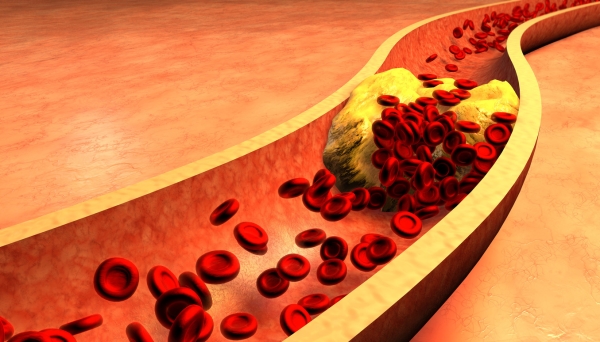Can thyroid function affect your cholesterol?

As you probably know thyroid problems can have a ripple affect on other parts of your body and this includes your cardiovascular system. I have previously talked about this here but in this blog post I would specifically like to talk about the effect that thyroid function can have on your cholesterol levels.
What exactly is cholesterol?
Cholesterol overall definitely gets a lot of “bad press” but this waxy substance is crucial to your body because it is needed to:
- make hormones such as testosterone and oestrogen
- build cell walls
- produce Vitamin D
- make fat-dissolving bile acids
It is low-density lipoprotein (LDL) cholesterol which is regarded as “bad cholesterol” as this can build up in your arteries and make them narrow. This condition is called “atherosclerosis” and can lead to a stroke or heart attack. Your ideal LDL level is usually less than 3mmol/l.
“Good cholesterol” is high-density lipoprotein (HDL) cholesterol which carries cholesterol to the liver from where it is expelled from the bloodstream. Your ideal HDL level is greater than 1mmol/l.
If you are aged between 40 and 74 years you should automatically be invited by your NHS GP Practice to have a health check every 5 years. If a high cholesterol is detected it may be wise to additionally ask for your thyroid to be checked. Especially if you have additionally noticed these symptoms
The connection between hypothyroidism and high cholesterol
Thyroid hormone is needed to help exit your LDL particles from your bloodstream via the liver and this function is slowed down when you have low thyroid levels.
This is because your underactive thyroid produces an insufficient amount of T3 hormone which stimulates the breakdown of cholesterol – in a process called lipolysis – and there is consequently a decrease in the amount of LDL receptors whose role is critical in the removal of LDL.
Hypothyroidism is additionally linked with too-high levels of blood fats called triglycerides which is also linked with higher levels of cholesterol.
Even people with subclinical hypothyroidism (which means your thyroid levels are a little low) can have LDL cholesterol levels which are higher than normal.
High LDL levels are associated with Alzheimer’s as well as cardiovascular disease, so it’s obviously crucial to get these under control. However, although treatment with thyroid hormone may help to lower high cholesterol levels, this alone may not fully restore the desired functionality.
In fact, around 13% of people with treated hypothyroidism also have high cholesterol levels.
Because of this, it is important to be vigilant about your cholesterol levels by having them regularly checked (particularly during major body changes such as menopause) and by taking steps to keep your cholesterol levels low
How you can keep control of your cholesterol levels
- Lose weight – even a modest amount like 10lbs (4kg) can make a positive difference to your cholesterol levels
- Exercise on a regular basis – this can help to reduce your LDL and raise your HDL
- Avoid eating too many trans fats which are contained in foodstuffs such as fried food, takeaway meals, cakes, biscuits, pastry hard margarine
- Avoid eating too many saturated fat foods such as sausages, ham, burgers or fatty meats; hard cheeses; whole milk and cream; butter, lard and ghee; suet, palm oil or coconut oil
- Aim to eat a heart healthy diet which has a high amount of fruits, vegetables, wholegrains and lean protein (such as poultry, fish and nuts)
- Your doctor may advise cholesterol-lowering medication as well as your thyroid replacement treatment if you considered at high risk of heart disease or a stroke
If it has been some time since your cholesterol levels have been checked I would recommend you to make an appointment with your GP.
I hope you have found this blog post useful.
Although every effort is made to ensure that all health advice on this website is accurate and up to date it is for information purposes and should not replace a visit to your doctor or health care professional.
As the advice is general in nature rather than specific to individuals Dr Vanderpump cannot accept any liability for actions arising from its use nor can he be held responsible for the content of any pages referenced by an external link










